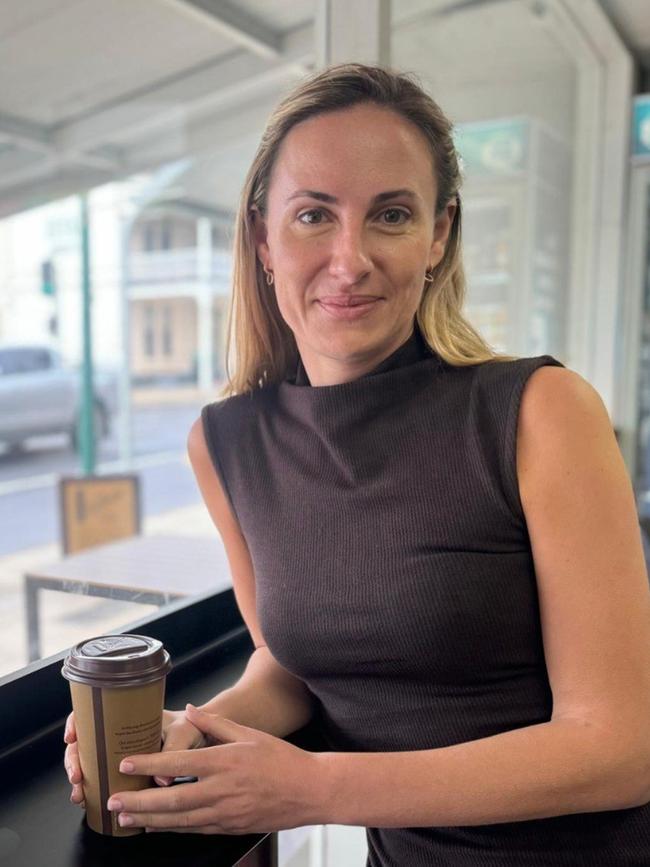Heartbreaking reason Cameron Wemyss refuses to attend school
Kylie Wemyss doesn’t remember the last time her teenage son attended school for a full week. The stress has left her suffering mentally and physically.
Lifestyle
Don't miss out on the headlines from Lifestyle. Followed categories will be added to My News.
Kylie Wemyss cannot remember the last time her teenage son went to school for a full week.
The single mother-of-two said the Covid lockdown was the beginning of Cameron’s issues with school.
He was 12, going into year seven when the lockdown began in 2020.
“He had a really good year six … he was looking forward to going into year seven,” Ms Wemyss said.
Cameron’s school, like most schools across Australia, went online and sent packages of work to their home in Halfway Creek in NSW.
“He flatly refused to do it,” the 52-year-old mum said.
“He found remote learning to be very difficult, he couldn’t get his head round it.”
Eventually, Ms Wemyss was forced to get an exemption for Cameron, who is now 16, to return to school in person with children of essential workers.
Ms Wemyss told of her family’s struggles after watching The Advertiser’s four-part docu-series Lockdown Kids: How To Break a Generation, which detailed the effect lockdown had on school refusal rates.


Ms Wemyss said her 16-year-old son has always been introverted but the lockdown caused him to become “a lot more introverted” and have “high anxiety”.
“To this day … if you want him to go into town with you, you’ve got to give him three days’ notice so he can prepare himself,” she said.
Since the lockdown, Ms Wemyss said Cameron has one or two days off school every single week.
Her youngest son Liam also misses school, but for the now 14-year-old, Ms Wemyss said he suffers with bad allergies and tends to get sick often.


For Cameron the battle to avoid school begins the night before a school day.
“He’ll come in (to my room) about 11 o’clock, 11.30, when I’m half asleep, and say ‘I’m not going to school tomorrow’,” Ms Wemyss said.
“I can’t fight with him anymore, it drives me absolutely insane fighting with him.”
Cameron would look for any reason to not go to school.
Recently Cameron didn’t go to school because he’d run out of shampoo and conditioner and couldn’t wash his hair.
“It’s like you’re a 16-year-old boy, no one expects you to have clean hair everyday,” Ms Wemyss said.
The pressure of her sons not attending school has put significant pressure on the 52-year-old who said it has triggered her irritable bowel syndrome (IBS).
“After an argument with Cameron my stomach just goes into absolute meltdown and I can’t do anything,” Ms Wemyss said.
“I can’t walk away from the toilet, it gives me indigestion and I feel very sad.”
Ms Wemyss said she didn’t enjoy school when she was younger, saying she felt like “a square peg in a round hole” but “it just is the way it is”.
“He’s missing out on so much and I feel for him,” she said.
“Our kids are never going to get that time back.”
One Nation MP Sarah Game is expected to bring a motion to vote in the upper house of state parliament next week establishing a select committee of the Legislative Council reporting on government and non-government school attendances.
“Since being elected to parliament, I’ve had some schools report to me consistent absentee levels of over 40 per cent,” Ms Game told The Advertiser.
“Much of our state’s future is built on students progressing through their schooling successfully and taking on skilled roles in the workforce that often require a tertiary education.
“That’s one of the saddest parts of student absenteeism – students are being robbed of the same opportunities as their peers to be the very best they can.”
She said the overall South Australian numbers for average school attendance for year one to year 10s across all schools has improved slightly from 86.5 per cent to 88.4 per cent in 2024 but the issue remains.
“When I have visited disadvantaged South Australian schools, the top issue principals have raised with me is chronic absenteeism, and I have long been concerned there is insufficient support for schools to deal with it,” she said.
“As a mother of three young children myself, most importantly I am absolutely alarmed about the welfare of these missing children.”






